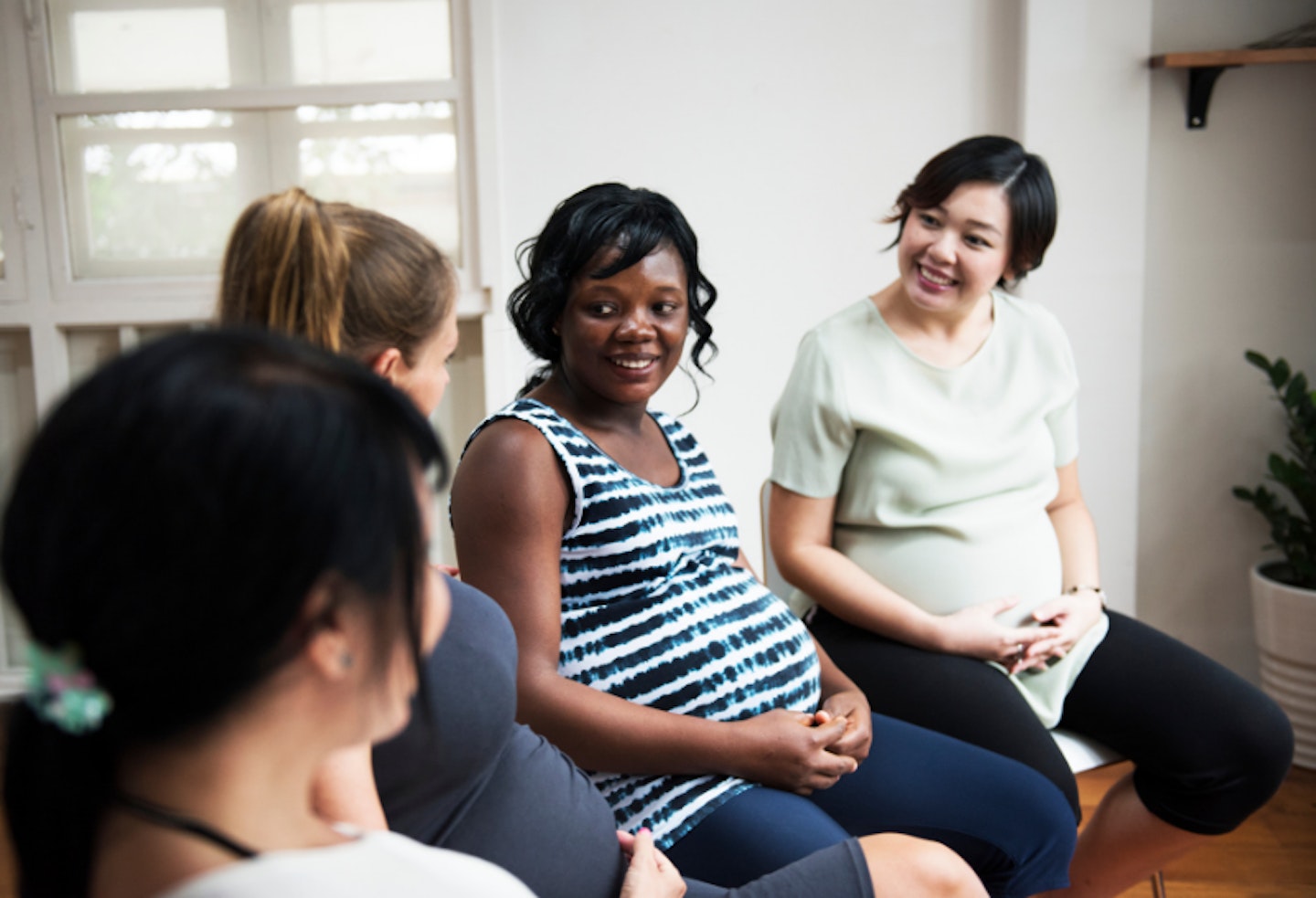Antenatal classes (sometimes known as parentcraft classes) help you and your partner to prepare for the birth of your baby and are full of lots of helpful tips on how to look after your new arrival which is especially useful if it's your first child. They can also be a great place to meet other expectant parents in your area who go on to become friends for life.
What happens in antenatal classes?
You can expect to learn the following in your antenatal class...
• Health in pregnancy – you’ll learn all about how to stay healthy in the run-up to the birth. You can read more here about your pregnancy diet and keeping healthy.
• Exercises during pregnancy – the classes will teach you about what exercise is safe to do during pregnancy.
• Labour and birth – you’ll learn more about the big day and what you can expect from your birth.
• Pain relief – there’s no denying, the labour will be painful and during the classes, you'll get to learn more about the different kinds of pain relief available.
• Relaxation techniques during labour – picturing a very relaxing birth? Here are [some tips which you can read more about here.]{href='https://www.motherandbaby.com/pregnancy-and-birth/birth/getting-ready-for-birth/keep-calm-and-carry-on-five-relaxation-techniques-for-a-better-birth' }
• Information about different birthing tools – They may look a little scary at first glance, but these clever tools can help you and your baby out when things get a little difficult. You can learn more about ventouse and forceps here.
• Feeding and caring for your baby – from breastfeeding to bathing, you’ll learn the basics about caring for a newborn.
• Self-care after birth – don’t forget to look after yourself too once the baby is born. You’ll also learn more about your body after having a baby.
• Emotional support– being pregnant and having a baby can be an emotional rollercoaster, and during your antenatal classes, you’ll learn more about how to deal with all the emotions you’re feeling.
Why should I go to an antenatal class?
Understanding how your body works in labour, the choices that you have available to you and finding tools to remain calm and confident is more important than ever.
There’s lots of evidence to show that a good antenatal education reduces the chance of intervention in labour and birth and contributes to making it a more comfortable and positive experience for you too. And thankfully, in the age of the internet, you can get this from the comfort of your own home as well as in person, so the choice really is yours.
How can I find antenatal classes near me?
You can ask your GP, midwife or health visitor about local classes or the NHS has a great tool to help you find antenatal classes near you.

When should I go to antenatal classes?
Antenatal classes usually start at around 8-10 weeks before your baby is due and take place every week, lasting around two hours per class.
Do antenatal classes cost money?
This depends on which ones you decide to go for. Antenatal classes run by the NHS are free to go along to and you’ll often receive information about these through your midwife. You’ll learn how to look after and feed your baby as well as stay healthy through your pregnancy. It’s worth remembering that groups for these classes are usually quite big with a focus on the practical aspect of giving birth and a focus on providing guidance.
However, there are also plenty of other private classes or courses that charge a fee such as NCT, which give in-depth information but also tend to feature smaller groups and are a great opportunity to form lasting friendships for both Mum and Dad. There’s a reunion organised after all of the babies have been born, so your bundle of joy will have their very own group of mates right from the outset, and many mums find their NCT group is a lifeline in the early months.
You won’t lose holiday
If you’re worried about needing to take holiday if you have to take time off work to attend your antenatal classes, don’t stress! If you are an employee, you have the right to take paid time off for your antenatal appointments which includes classes such as relaxation and parentcraft. Visit citizensadvice.org.uk for more information.
Think about…
Making a note in your diary - You will typically start antenatal classes when you are around 30-32 weeks pregnant, although if you are expecting twins, it’s a good idea to start your classes at 24 weeks, as your babies could be born early.
Booking early - Classes can quickly fill up, so book early to make sure you don’t miss out on a place in the class you want. Course provision can vary from area to area so it’s worth investigating what’s available close to where you live early on in your pregnancy - as soon as your 12-week scan.
Bringing your partner - Women-only classes are available if you’d prefer but a couple’s class will enable both you and your other half to feel involved in the preparation for birth and parenthood. It’s a lovely bonding experience for the three of you and will help your partner get an idea of exactly what you’re going through and what they can do to help.

What if I can't get to antenatal classes?
Don't worry if you can't attend antenatal classes for one reason or another as there are other ways to get the support and information you require. Be sure to speak with your community midwife as they may be able to recommend or lend you resources about antenatal care such as DVDs.
Alternatively, there are some online courses that you can take from the comfort of your home. Here are some free and paid-for options to consider.
Now baby live
This service offers mums-to-be the option of eight different courses. You can choose individual ones or select the whole set – whichever suits you best. Individual classes cost £12.50 each or the whole course costs £80.
Baby centre free antenatal classes
The baby centre offers 8 free online antenatal classes for parents to learn more about what is ahead on their pregnancy and baby journey.
Our Place antenatal classes
These classes are designed to give parents practical and helpful information for just £19 for the whole course.
My Expert Midwife antenatal classes
They may be well known for their fab products but did you know My Expert Midwife do their own classes too? The midwife delivered antenatal classes will help you to gather all the knowledge you need for labour, birth and your journey into parenthood.
Things to consider when selecting an online antenatal course
• Who is providing it and is it evidence-based?
• How long is it? (A 1-hour course is obviously going to provide less information than a 6 hour one!)
• What’s the approach and does that sit with your own take on birth? Eg. Is it doctor-led and more medical, is it focussed on one type of birth, is it more holistic?
• What does it actually cover? (Crucial things to know about would be the physiology of birth, pain relief options- both natural and medical, birthplace choices, interventions, and possibly breastfeeding and postnatal info too).
• What kind of ongoing support is there? Are you able to ask questions like you would in an in-person course?
• What supporting materials are there?
Do I need antenatal classes if I've already had a baby?
The choice is entirely yours. Antenatal classes aren't just for first-time mums-to-be and many women find it useful to have a refresher, especially if there's a big age gap between your pregnancies or if you plan on giving birth differently the second time around. That said, many parents do not find it necessary after having been through the experience before.
An alternative option if you're already a parent is the NCT Antenatal refresher course.
Popular articles to read next
Your hospital bag checklist: essentials to pack for labour, according to mums and experts
The best pregnancy pillows to help you sleep more comfortably
